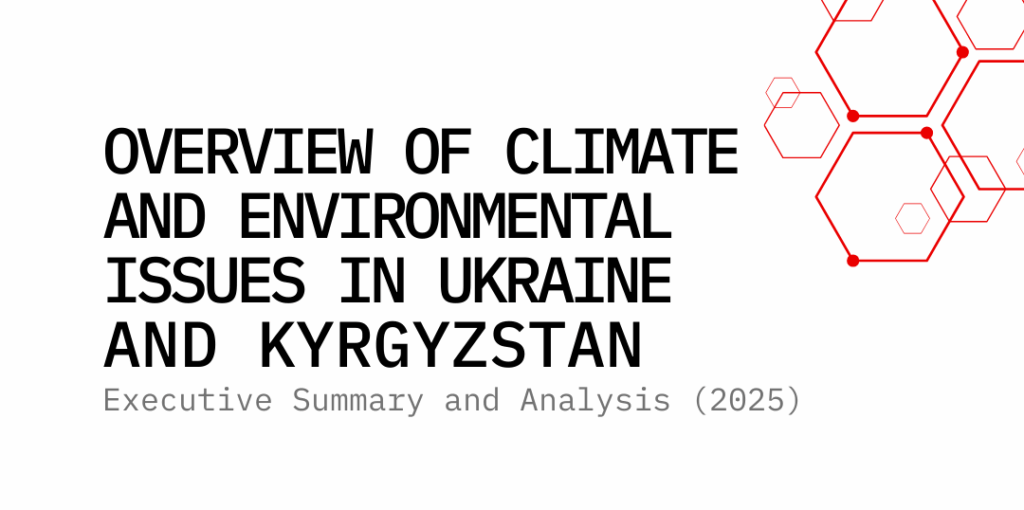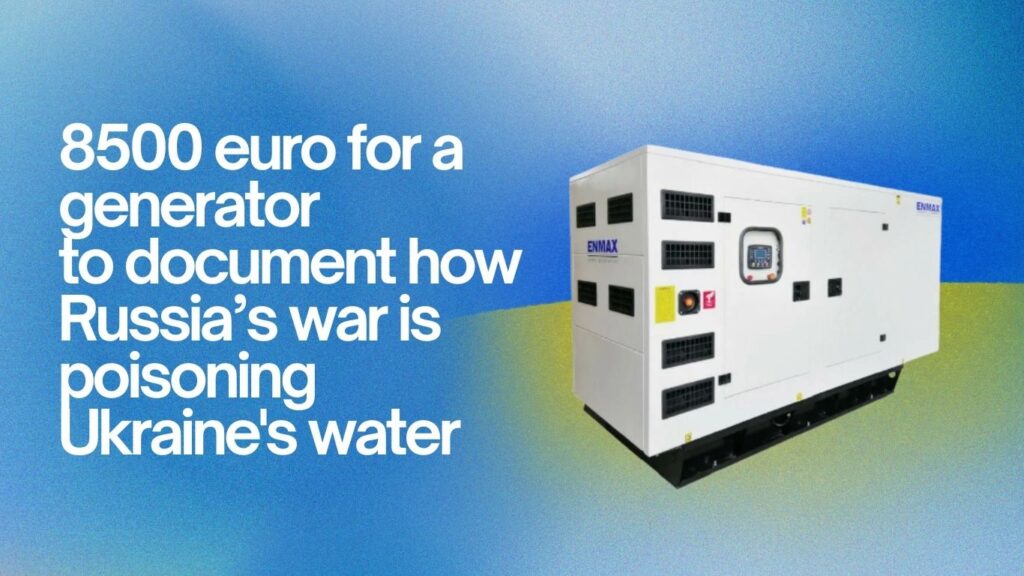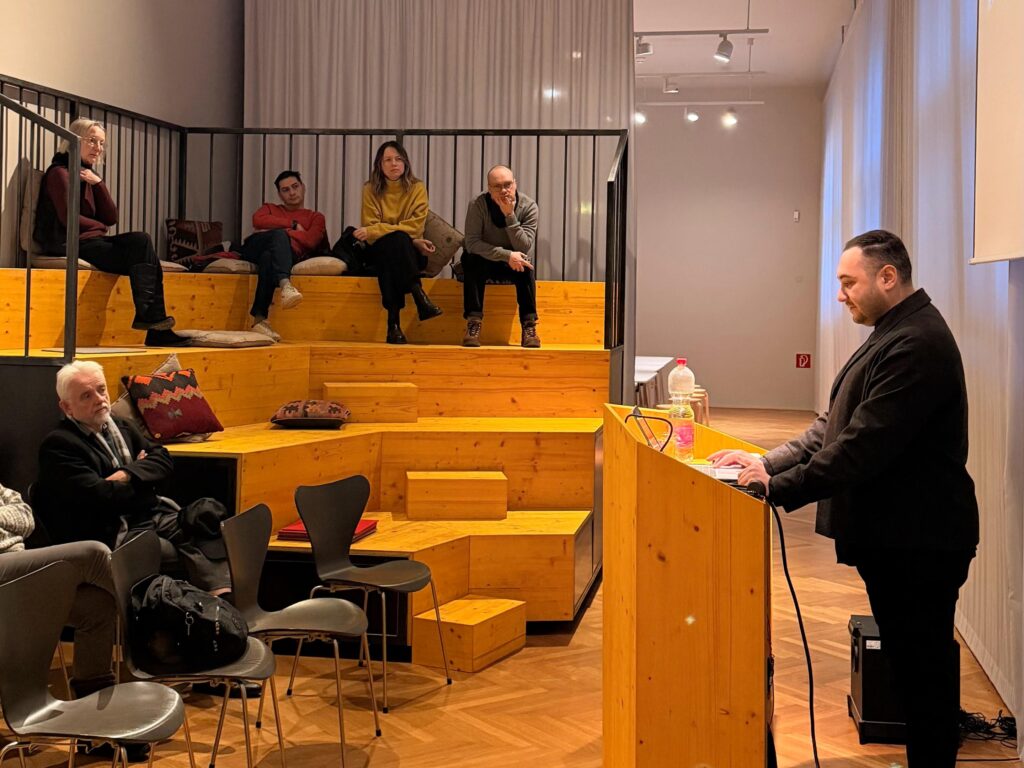Climate and Environmental Challenges in Ukraine and Kyrgyzstan: An Overview by Austausch e.V.
This overview highlights the major environmental and climate-related challenges facing both countries – from the destructive impact of Russia’s war of aggression against Ukraine on ecosystems and climate processes, to the growing risks of desertification, water scarcity, and air pollution in Kyrgyzstan.
The study emphasizes the compounded risks where climate change and military conflict overlap, underscoring how war exacerbates long-term climate impacts such as deforestation, soil degradation, and greenhouse gas emissions. At the same time, it documents the resilience of local communities and civil society organizations, who continue to implement adaptation measures, expand renewable energy initiatives, and promote environmental education under extremely challenging conditions.
The findings also show parallels between the two countries: both Ukraine and Kyrgyzstan are working to strengthen their renewable energy sectors, decentralize energy generation, and integrate civil society into environmental policy despite political, security, and economic constraints.
Climate change
In Kyrgyzstan, increasingly frequent dust storms, shrinking water resources, and glacier loss undermine public health, agriculture, and hydropower, exposing systemic vulnerability to climate fluctuations.
In Ukraine, prolonged droughts, flash floods, extreme heat, and war-related pollution create a “double burden,” intensifying pressure on agriculture, infrastructure, and energy systems.
Impact of military action on climate processes in Ukraine
The full-scale war has heightened anthropogenic pressure through the destruction of industrial and transport facilities, large-scale fuel combustion, and munitions explosions. Consequences include loss of green cover, wartime forest fires, and the erosion of natural buffer zones – yet national strategies and local projects (urban greening, renewables) continue to build adaptation capacity.
Local initiatives for climate change adaptation
Despite wartime conditions, Ukrainian municipalities, NGOs, and communities advance urban greening and eco-education: new parks and tree planting in affected regions, public reservoir monitoring in Ivano-Frankivsk (documented by the Drukarnia civil society center), and biodiversity micro-projects such as an “insect hotel” at Kyiv’s Fomin Botanical Garden. Partnerships with groups like EcoClub integrate green infrastructure into city planning (e.g., solar streetlights, community composting), delivering tangible co-benefits for resilience and public well-being.
Decentralized energy
Ukraine is accelerating distributed generation to increase wartime resilience. NGOs (notably EcoClub) train local leaders and support installations in public institutions (solar, heat pumps). Cities develop cogeneration, solar-plus-storage for critical services (e.g., water supply in Mykolaiv), explore waste-to-energy (Vinnytsia), and expand municipal solar capacity (Khmelnytskyi).
Kyrgyzstan cities (Bishkek, Osh, Karakol, Naryn) combine urban greening with pilot renewables and community education as part of a broader, citizen-driven energy transition.
Food security as part of climate challenges
In Ukraine, droughts, uneven rainfall, and extreme weather reduce yields and shift agricultural geography as southern/eastern regions face water stress and war-related land contamination. Community gardens, urban farms, and food-sharing initiatives help mitigate risks and support vulnerable populations.
In Kyrgyzstan, glacier melt and water scarcity undermine irrigation and pastures, threatening rural livelihoods. Adaptation includes expanding greenhouses, creating sustainable supply chains, and piloting FAO-supported water management systems.
Environmental education & awareness
Kyrgyzstan: The 2024 Bishkek Urban Forum brought together regional stakeholders to plan greener, more resilient cities, resulting in practical projects such as tree planting and energy-efficient lighting.
Ukraine: Despite the war, local authorities and NGOs expand training and demonstration projects (renewable energy in schools, community retrofits). Inclusive eco-camps and public programs engage veterans, IDPs, youth, and women as key drivers of resilience.
Regulatory trends
Ukraine (2024–2025): Adoption of the National Renewable Energy Action Plan (≥27% RES by 2030), introduction of EU-aligned integrated environmental permits (IPPC), and reform of environmental supervision.
Kyrgyzstan (2025): Presidential Concept of Environmental Security to 2040, tougher penalties for violations, accelerated hydropower expansion, and support for renewables – while grappling with structural risks and water scarcity.
“This overview reminds us that combining grassroots initiatives with shared expertise and commitment is the key to overcoming the climate and environmental challenges we face together”. – Anastasiia Bondarenko, Coordinator of the Climate and Environmental Department at Austausch e.V.
Complete overview available here: https://drive.google.com/file/d/1_51t4XdaPcEjhl2GCTpbvubioADbQiKq/view?usp=sharing
This overview was developed within the framework of the project “Strengthening the NGO Network ‘EkoNet’ on Climate and Environmental Protection in Eastern Europe and Central Asia.” It was prepared by Austausch e.V. with the support of Bread for the World.





